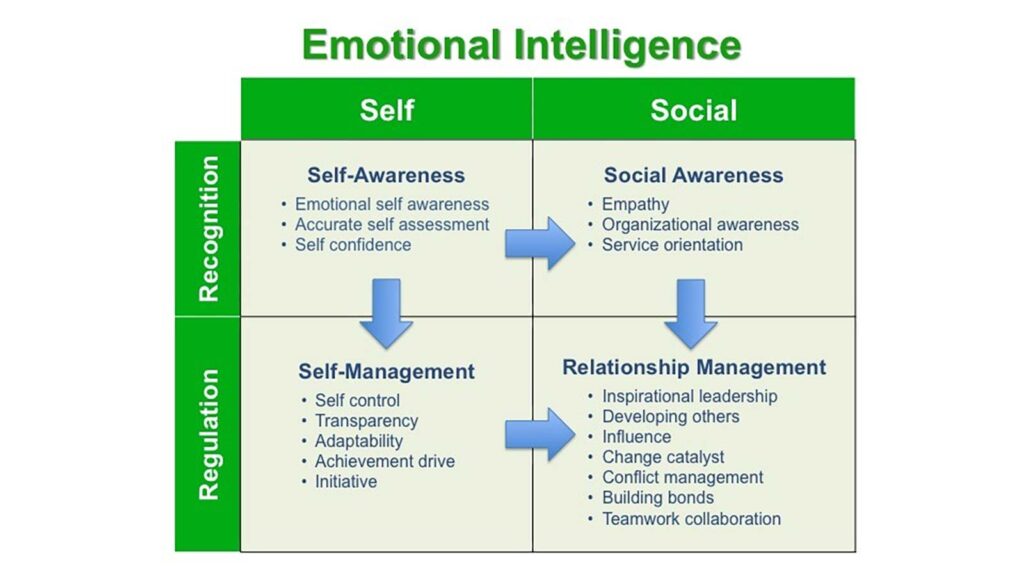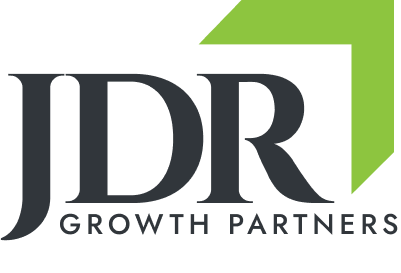The best leaders invest the time and energy to get inside the heads of the people they are leading. They don’t just follow the golden rule and treat people the way they personally want to be treated. They work hard to understand the formative experiences and motivations of the people they lead, and they try to see the world through the lenses of others. They are emotionally intelligent (EQ). While they lead with unwavering principles and drive, they are agile in their dealings with others because they understand that everybody is motivated by a unique view of the world, grounded in their own formative experiences.
This does not mean that high EQ leaders are chameleons. Most are quite steady and consistent in their beliefs and practices. But they also have a high level of self-awareness with an acute understanding of how their feelings affect themselves, other people, and their performance. Their unwavering focus on their values and priorities makes them the enemies of politics, infighting, and passive-aggressive behavior. They have a clear sense of where they are headed, and most importantly, why.

It’s easy to discount what some would call this softer side of leadership because the relationship between EQ and bottom line results isn’t always obvious and is rarely measured. As a former CEO and now as a leadership consultant I have occasionally encountered board members, executives and managers who think you are a wimp if you even talk about this stuff! But evolving workforce trends increasingly make people who ignore EQ look like dinosaurs.
Over the last decade more and more scholars, practitioners, and authors such as Geoff Colvin have recognized and documented the connection between corporate culture and bottom line results, and higher EQ leaders cultivate healthier cultures. Furthermore, the continued progression of women into leadership roles is having a profound impact on the way we run companies, and the attitudes of the millennial generation are accelerating progress toward a workforce that expects more emotionally enlightened leaders because we raised them to expect it. The bar is being raised, and EQ matters more today than it ever has before.
Growth Mindset
To be clear, I’m a big fan of prioritizing bottom line results and accountability. Those companies who don’t ultimately underperform. But I also believe that the way short-term results are delivered will significantly impact an organization’s ability to deliver sustainable growth. High EQ leaders understand this balancing act. They are contagiously optimistic, even in the face of adversity, without being pollyannaish. They love teaming with others to win. When they are not winning, they see the other side of winning as not winning yet. As eager lifelong learners, they seek challenges that will both stretch their capacities and strengthen their skill sets. While they take personal pride in their achievements, they experience even more gratification when helping others achieve important goals. These servant leaders are genuinely committed to the growth of their team and the people they lead.
Character, Courage, and Trust
High EQ leaders foster cultures of trust and fairness and are capable of being vulnerable with the people they lead. They are in touch with their emotions and comfortable discussing feelings. This enables them to deal with ambiguity, change, and even crises with agility and courage because they don’t panic. These are the moments that set them apart. While others retreat toward self-preservation, high EQ leaders suspend judgment, analyze the situation, and draw upon the best thinking in their teammates. Their extraordinary ability to self-regulate helps them make tough, principle-based decisions while appreciating the feelings of others, because they avoid confusing empathy with sympathy. This self-regulation also helps them avoid impulsive temptations; sending a powerful message to their teammates that their integrity and character are unwavering.
Force Multipliers
Finally, high EQ leaders work diligently to build a solid foundation of relationships with stakeholders, teammates, customers, and partners. These leaders are very good at finding common ground with a broad range of people. They are persuasive and nimble communicators, adjusting their approaches, not their principles, based on the needs of their audience and the situation. In contentious scenarios, they have the keen ability to negotiate win-win solutions. They can see the gray when most see only black and white, and simply dig in their heels. They help others navigate choices that might appear to be either/or into solvable paradoxes. These leaders cultivate healthier organizations because people all around them work to emulate their collaborative and emotionally intelligent role model. They are force-multipliers, and their results are rarely one-hit wonders because talented people flock to them and are inspired to help them build upon their successes. Ultimately, leaders like this bring out the best in others, which is why emotional intelligence matters more now than ever.





